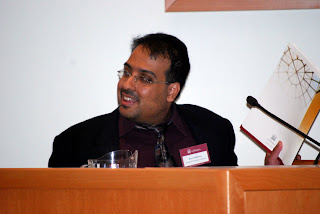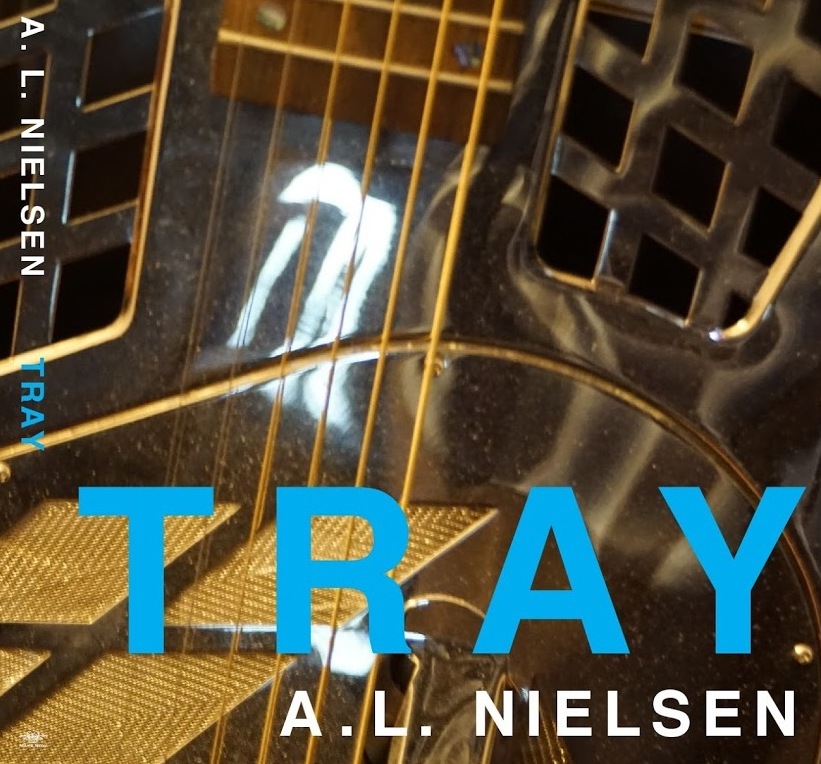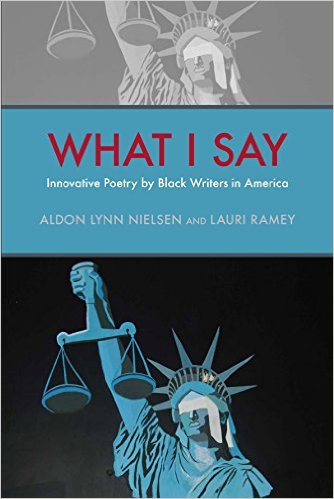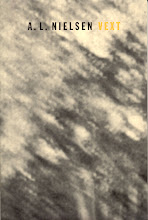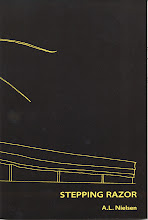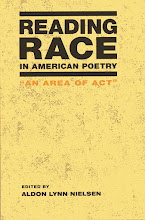Language
An abstract overcoat
Concealing laws
Which (in themselves)
Are abstractions.
The word seeking finitude,
The spirit loving space –
And we spin and spin and spin to catch
The outsider/ourselves.
“Where to begin; where to begin?” so asked Houston A. Baker, Jr., about a third of the way into a talk at the Modern language Association many years ago. I’ve chosen to begin with these words from his 1982 volume Spirit Run because they seem to me a sort of spirit catcher, a mode of traversing space and finitude I think characteristic of his life’s work, and because, characteristically for me, I suspect he has never before heard these words read back to him in an introduction to one of his lectures.
Another place to begin might be Louisville, Kentucky, where his writing life commenced, he reports, with his “inscribing melodramatic vignettes on the back of church programs during Sunday services.” That conjoining of the sacred and the secular, the vernacular and the liturgical, the melodramatic and the analytic has been, in my reading, at the heart of all his work ever since.
Another place to begin might be Howard University, a place that very nearly became a Baker family enterprise at one point, a place he seemed guided to by his life in Louisville. There was the father, who told his sons he had simply found the desire for college, as though sipping it from the air, and whose departure for college Baker describes as “a willed act of resistance to white America’s expectations . . . “ There was Louisville Western Public Branch Library, which set him on his course of study in English at Howard and Graduate school at UCLA.
Baker has written that “No matter where you travel, You still be black.” No matter where you begin in his narrative, you come to the same remarkable list of field-altering books. Following his brief detour into British Literature, Baker published Long Black Song, Singers of Daybreak, The Journey Back, Blues, Ideology and Afro-American Literature, Afro-American Poetics, Modernism and the Harlem Renaissance, Workings of the Spirit, Black Studies, Rap and the Academy, I Don’t Hate the South and Betrayal. In his academic career he has traveled to the University of Virginia, Yale, The University of Pennsylvania, Duke University and Vanderbilt. His work has garnered the more familiar awards, Guggenheim, Whitney, Rockefeller, but he has also been recognized by his peers in writing, most recently with the American Book Award of the Before Columbus Foundation, an award also presented in recent years to two members of our Penn State Faculty.
Baker begins Black Studies, Rap and the Academy with the impish suggestion that while nobody can ever be certain what is happening at Duke, everyone knows the familiar story of Black Studies. Readers of his poetry will catch that nuance at once. It is the familiar story of Black Studies that everyone knows, and therein lies the problem, the problem that led in the closing years of the twentieth century to the discipline’s “relegation . . . to the briefest possible space in the encyclopedia of postmodern American academics,” as Baker tells us. That this familiar and wholly apocryphal story has proved so appealing to the encyclopedists of American literary studies was all too predictable. But thanks to the efforts of poet/scholars such as Houston A. Baker, Jr., there is an ever elongating print trail we can follow to set the record straight, to make a way out our shocked response to that apocryphal tale of Black Studies’ evolution, “no way.”
This is a new century and new volumes of the encyclopedia are being written as we gather. Houston A. Baker is nothing if not voluminous. Years ago at the Georgetown University conference on Theory, Baker, one of the keynote speakers, approached the podium brandishing a manuscript encyclopedic in girth, if not in subject. Noting the looks on the faces of his audience, Baker flipped through the pages, smiled, and reported what his family had said when looking at his “paper.” “It’s got chapters and everything.”
We are fortunate to hear the next chapter this morning. Please join me in welcoming to Penn State, professor Houston A. Baker, Jr.


 The final day of the conference on the contemporary African American novel began at 0-dark-hundred, as we used to say, with a very early morning lecture on pedagogical issues offered up by Maryemma Graham, whose talk was itself a model of good teaching technique. That lecture was paired up with a panel later in the morning that furthered the work done in the "post-soul" issue of African American Review. The morning also saw novelist Mat Johnson reading selections from his riotous forthcoming novel Pym.
The final day of the conference on the contemporary African American novel began at 0-dark-hundred, as we used to say, with a very early morning lecture on pedagogical issues offered up by Maryemma Graham, whose talk was itself a model of good teaching technique. That lecture was paired up with a panel later in the morning that furthered the work done in the "post-soul" issue of African American Review. The morning also saw novelist Mat Johnson reading selections from his riotous forthcoming novel Pym.
















































